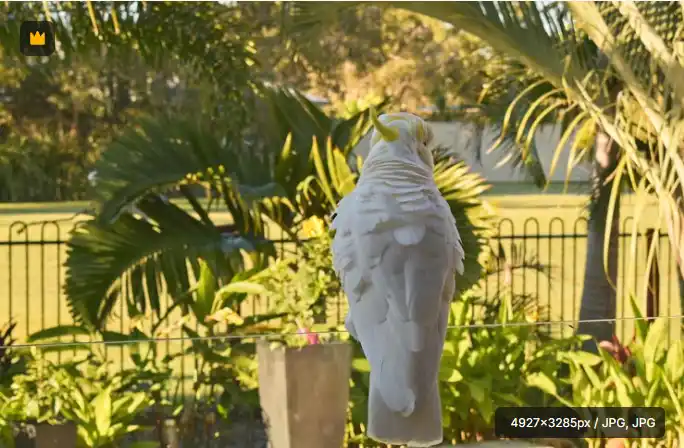In the world of waste management and recycling, technology has made significant strides in recent years. The introduction of AI-driven solutions has transformed the way we handle waste, making recycling processes more efficient, accurate, and sustainable. Companies like Bollegraaf Ai Greyparrot Airivero Washingtonpost are at the forefront of this revolution, utilizing cutting-edge artificial intelligence to change the landscape of recycling. Their contributions have been highlighted in publications like the Washington Post, which has reported on how these technologies are reshaping industries and helping address global environmental challenges.
Bollegraaf: Innovating Recycling Technology
At the heart of the recycling industry’s technological revolution is Bollegraaf, a company known for its state-of-the-art machinery that makes recycling easier, faster, and more efficient. Founded in the Netherlands, Bollegraaf has been a leader in developing automated systems for waste sorting. Their machines are designed to optimize the recycling process by separating materials like plastics, metals, and paper with high precision.
Bollegraaf’s latest systems incorporate AI and machine learning to improve their sorting capabilities. These innovations are capable of identifying materials based on their size, shape, and even chemical composition. As a result, recyclers can achieve higher purity rates in the separated materials, improving the quality and value of recycled products.
Greyparrot: AI-Driven Waste Recognition
Bollegraaf Ai Greyparrot Airivero Washingtonpost is another major player in the AI-powered recycling space. Based in London, Greyparrot has developed an advanced AI system that uses computer vision and deep learning algorithms to automatically identify and sort waste in real-time. Their platform leverages high-resolution cameras and AI to analyze the materials passing through a recycling facility, distinguishing between different types of waste such as plastics, metals, and organic materials.
Greyparrot’s system has proven invaluable in improving the efficiency of waste sorting. In traditional recycling processes, workers manually sort waste, which can be time-consuming and error-prone. With Greyparrot’s technology, the process becomes automated, saving time and reducing human error. This results in more accurate waste separation, leading to a higher quality of recycled materials and contributing to the reduction of contamination in the recycling stream.
Airivero: Transforming the Waste Stream
While Airivero may not be as widely recognized as Bollegraaf or Greyparrot, it is making notable strides in the recycling sector by using AI to optimize waste management processes. Airivero focuses on creating smart systems that integrate AI with waste monitoring technology. By utilizing machine learning algorithms, Airivero’s solutions help waste management facilities predict the flow of materials and optimize the sorting process to increase recycling rates.
One of the key aspects of Airivero’s approach is its focus on smart waste tracking. Through AI-based systems, Airivero helps municipalities and waste management companies keep track of the waste collected, ensuring that recyclable materials are efficiently routed to the appropriate processing facilities. This streamlined approach significantly reduces inefficiencies and helps municipalities meet their sustainability goals.
The Role of AI in Sustainable Recycling Practices
The integration of AI in recycling systems represents a major breakthrough in sustainable waste management. Recycling is a crucial component of the circular economy, where resources are reused and repurposed to reduce the need for virgin materials. However, traditional recycling methods have been plagued by inefficiencies, contamination, and low-quality material recovery.
With AI-driven technologies like those from Bollegraaf Ai Greyparrot Airivero Washingtonpost recycling has become more precise and productive. The ability to automatically identify and sort different types of waste not only saves time and labor but also ensures that recyclable materials are less likely to be mixed with non-recyclable waste. As a result, the quality of recycled materials improves, making them more valuable for manufacturers looking to use recycled materials in their products.
Impact on Global Sustainability Goals
The work of companies like Bollegraaf, Greyparrot, and Airivero contributes to the broader global effort to combat climate change and reduce waste. By increasing the efficiency of recycling, these companies are helping to reduce the amount of waste that ends up in landfills or incinerators, where it contributes to pollution and greenhouse gas emissions. Recycling also conserves valuable natural resources, reducing the environmental impact of extracting raw materials.
These advancements in AI-driven waste management align with the global push toward more sustainable practices. According to reports from major news outlets like The Washington Post, nations are increasingly focused on developing smart technologies to achieve their climate and waste reduction targets. The success of AI-powered solutions like those from Bollegraaf, Greyparrot, and Airivero is a testament to how innovation can drive meaningful change.
Looking Ahead: The Future of AI in Recycling
The future of AI in recycling looks promising. As AI technology continues to evolve, we can expect even greater precision in waste sorting, as well as the development of new materials and techniques to further optimize recycling. For instance, AI could play a significant role in the development of new biodegradable materials, or in the creation of systems that can recycle previously non-recyclable materials.
Furthermore, as AI-powered systems become more widespread, they will likely become more affordable and accessible to recycling facilities of all sizes. This will enable more regions and companies to implement these technologies, further boosting the global recycling rate.
Conclusion
The combination of AI and recycling is transforming the waste management industry, with companies like Bollegraaf Ai Greyparrot Airivero Washingtonpost leading the charge. By making recycling more efficient, accurate, and sustainable, these technologies are playing a crucial role in reducing waste and conserving natural resources. As these innovations continue to grow and develop, the future of recycling looks brighter than ever, helping to build a more sustainable planet for future generations.


